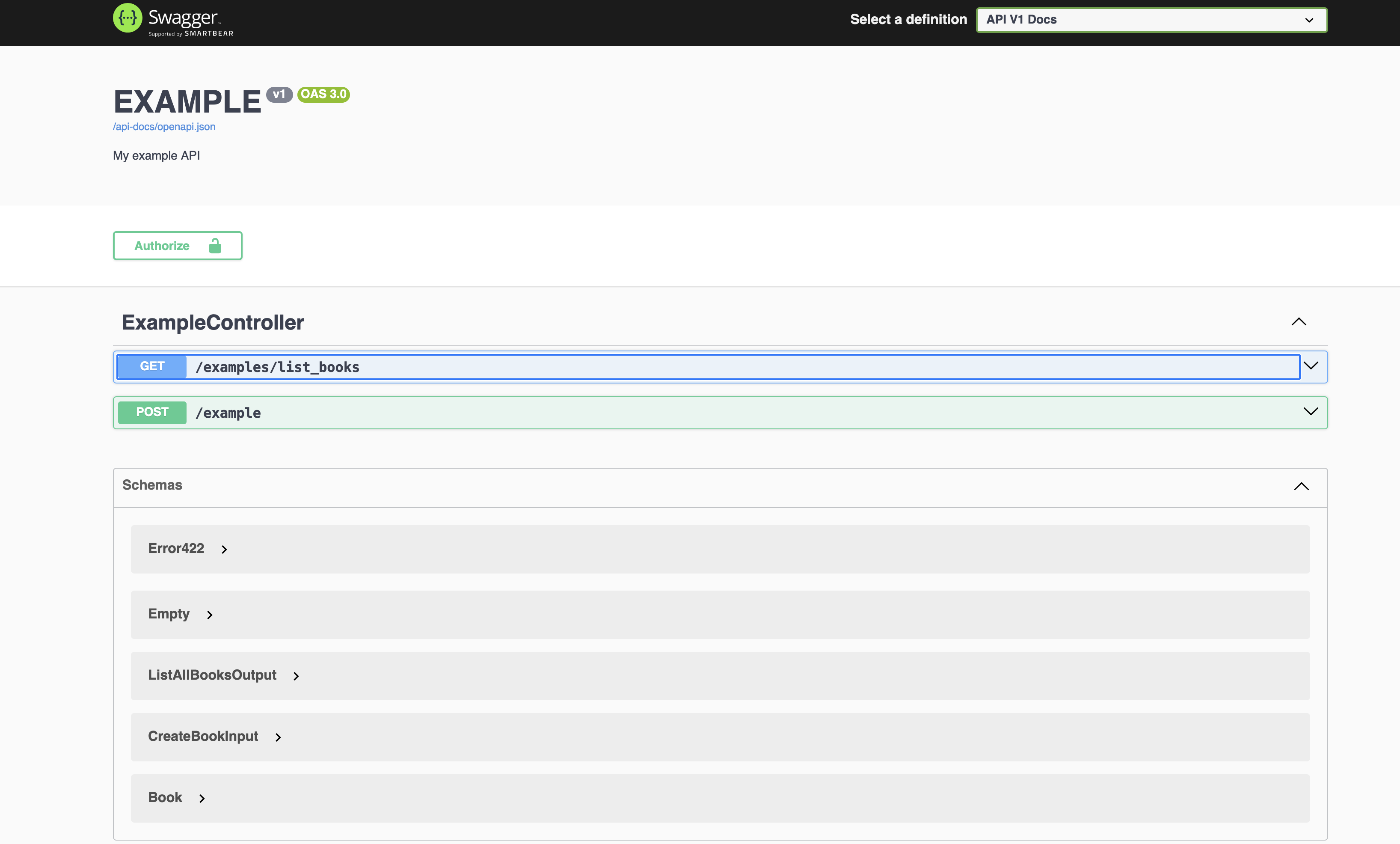Quick Start
This guide will help you get started with Mortymer in just a few minutes. We'll create a simple API endpoint that demonstrates the core features of Mortymer by integrating it in a Rails API, let's call it Rails and Mortymer.
Basic Setup
First, let's create a new Rails application (skip this if you already have one):
rails new my_api --api
cd my_apiInstallation
Add Mortymer to your Gemfile:
gem 'mortymer'Then install it:
bundle installIn rails environments, Mortymer can automatically create the routes for you, it is not necessary that you register them one by one.
# config/routes.rb
Rails.application.routes.draw do
Mortymer::Rails::Routes.new(self).mount_controllers
endCreating Your First API
Let's build a simple book API to demonstrate Mortymer's key features.
1. Define Your Type
Create a Book type that defines the structure of your data:
# app/types/book.rb
class Book < Mortymer::Model
attribute :id, Integer
attribute :title, String
attribute :author, String
attribute :published_year, Integer
end2. Create a Service
Create a service to handle business logic:
# app/services/book_service.rb
class BookService
def initialize
@books = []
end
def create_book(title:, author:, published_year:)
book = Book.new(
id: next_id,
title: title,
author: author,
published_year: published_year
)
@books << book
book
end
def list_books
@books
end
private
def next_id
@books.length + 1
end
end3. Create a Controller
Set up your API controller with Mortymer's features:
# app/controllers/example_controller.rb
class ExampleController < ApplicationController
include Mortymer::ApiMetadata
include Mortymer::DependenciesDsl
inject BookService, as: :books
class Empty < Mortymer::Model
end
class ListAllBooksOutput < Mortymer::Model
attribute :books, Array.of(Book)
end
class CreateBookInput < Mortymer::Model
attribute :title, String
attribute :author, String
attribute :published_year, Coercible::Integer
end
tags :Books
get input: Empty, output: ListAllBooksOutput, path: "/examples/list_books"
def list_all_books(_params)
ListAllBooksOutput.new(books: @books.list_books)
end
post input: CreateBookInput, output: Book
def create_book(params)
@books.create_book(
title: params.title,
author: params.author,
published_year: params.published_year
)
end
endTesting Your API
Start your Rails server:
rails serverCreate a new book:
curl -X POST http://localhost:3000/api/books \
-H "Content-Type: application/json" \
-d '{
"title": "The Ruby Way",
"author": "Hal Fulton",
"published_year": 2015
}'List all books:
curl http://localhost:3000/api/booksKey Features Demonstrated
This simple example showcases several of Mortymer's powerful features:
- ✨ Type System: Strong typing with
Mortymer::Modelswhich are powered byDry::Struct - 🔌 Dependency Injection: Clean service injection with
inject :book_service - ✅ Parameter Validation: Built-in request validation in controllers
OpenAPI Documentation
Mortymer automatically generates OpenAPI (Swagger) documentation for your API endpoints. After setting up your application, you can access the Swagger UI at /api-docs:

This interactive documentation allows you to:
- Browse all available endpoints
- See request/response schemas
- Test API endpoints directly from the browser
- Download the OpenAPI specification